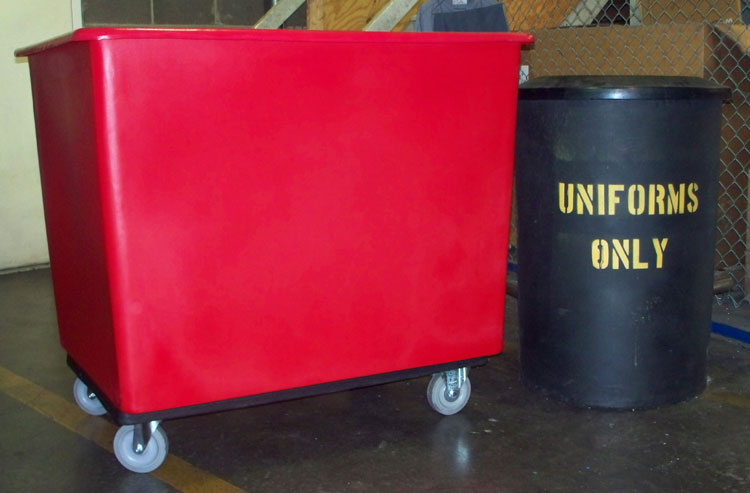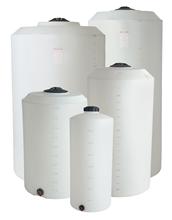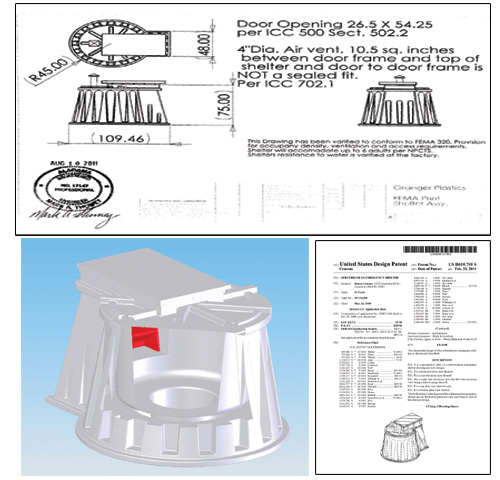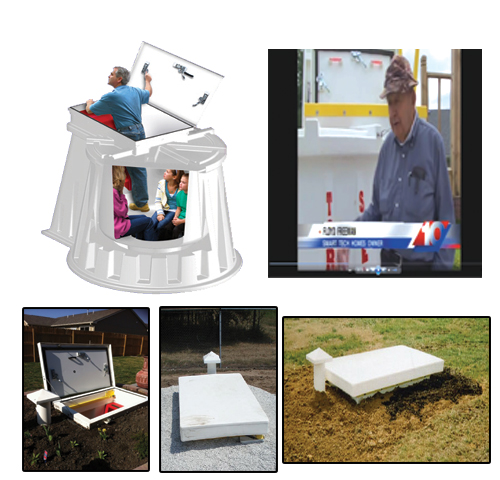Rotational Molding Request Quote
Rotational Molding Categories
Granger Industries Inc. Related Links
Since 1994 Granger Industries has provided industry leading solutions for a range of industries spanning from Aerospace, Defense, OEM Manufacturing, Agri-Products, Safety, Material Handling, Recycling and so much more. Granger actively pursures "Solutions beyond Expectations" for all customers, large and small.
- Granger Industries
- Granger Aerospace
- Granger Plastics Rotational Molding
- ForeverSafe™ Products
Rotational Molding on Twitter
Rotational Molding Design
Rotomolding Design
Rotational Molding design and innovation has came a long way in just short periods of time. A lot of companies have been very successful at designing and producing a wide variety of products from the rotational molding process. As companies have learned about the great physical properties of the materials, durability and the longevity of the materials as they were first being first heavily commercially used, it created a lot of companies and OEMS to reconsider some of their previous means of manufacturing to convert to Rotational Molding.
 |
 |
 |
Rotational Molding Design
Brief Rotomolding History
In terms of modern plastics processes, Rotational Molding is often regarded as one of the more recently recognized manufacturing processes. Rotational molding was developed in the late 19th century to develop the production of hollow vessels, particularly metal artillery shells. In the first part of the 20th century, the process was used to mass produce hollow choclate eggs. By the 1920's, plaster of paris was being molded by a means of biaxial rotation. Plastic materials were developed in the 1950's for use in the rotomolding process. One of the first major applications for the Rotational Molding process at the time was to produce doll heads from a liquid PVC plastisol material. By the 1980's a wide variety of materials had been developed for the Rotational Molding industry.
Rotomolding Design
Innovation, Strength, Durability
Rotational Molding, like all additional plastics processing techniques, has its very own distinct conveniences, downsides and part-design needs. The designer needs to recognize that there are no stresses or pressures involved that directly press the plastics thru the mold, as is the instance with thermoforming, injection and blow-molding. In rotational molding, the mold spins with a pool of liquid or powdered plastic and the plastic adheres to the scorching surfaces of the cavity to develop up the preferreded wall thickness.
Considering the circumstances, the ideal design for a rotationally molded part is any hollow shape where several aspects in the part design are smoothly blended from one shape to the next. The smooth blending of shapes results in a final product that has increased strength and is easer to produce and as a result, more economical.
The successful design of any plastic product is dependent to some extent at least, on proportioning the style of the component to accomodate the particular product that is to be made use of.
A rigid, low-mold shrinkage, high-temperature, hard-flow, amorphous component such as crystalline polyethylene is commonly used in Rotational Molding. Each plastic component has its own unique design requirements. Compared to some of the plastics processing techniques, rotational molding is fairly new. Some of the design guidlines are just now being formulated into "rules" and there still remains many unanswered questions.
 |
 |
Rotomolding Design
Innovations and Conversions
A large number of opportunites are presented to the rotational molding industry for conversion. Many rotomolding companies actively pursue products that are made of inferior materials, such as fiberglass. Many fiberglass products have been converted to a rotationally molded product for improved strength, durability and for a number of health conerns. Some of these products range from housings, tanks, storm shelters, boats and more.
To speak with someone about your Rotational Molding project, please feel free to contact us using the contact form or reach us toll free at (866) 510-9701!
